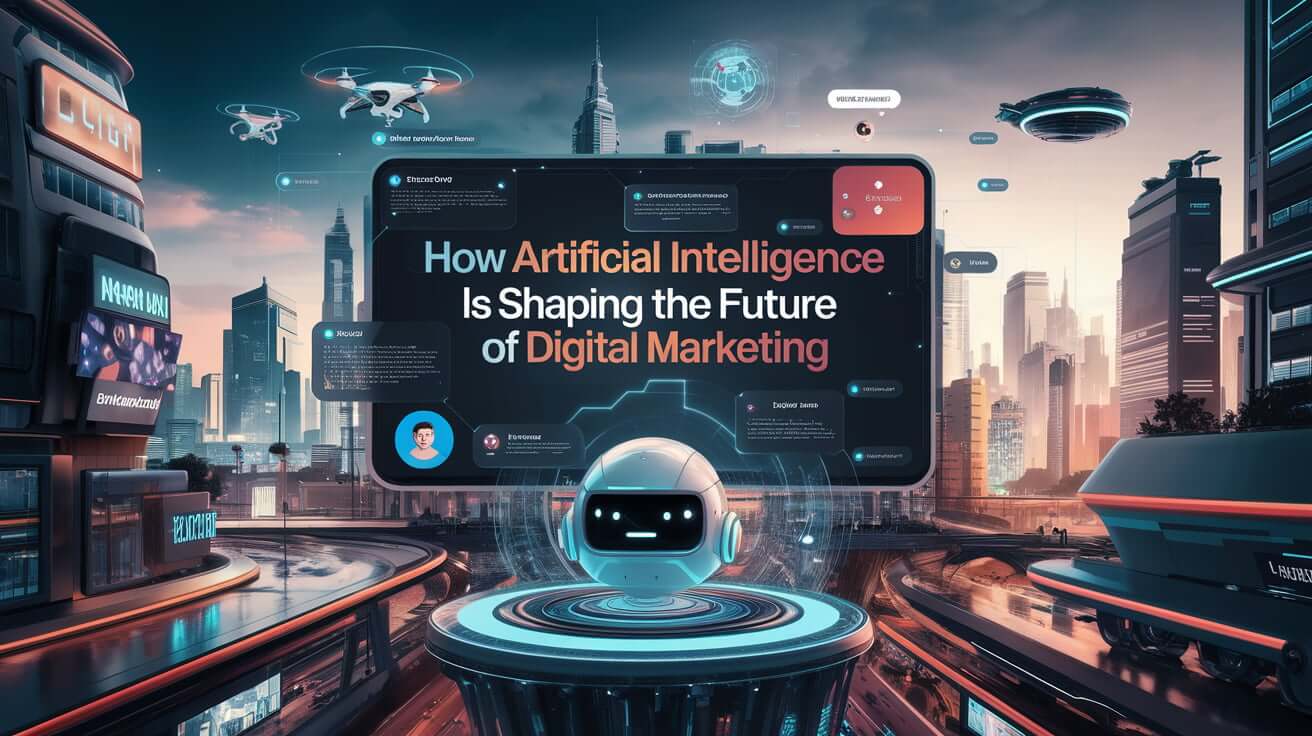How Artificial Intelligence is Shaping the Future of Digital Marketing
In today’s rapidly evolving technological landscape, artificial intelligence (AI) has emerged as a transformative force across industries. One area where AI’s impact is particularly profound is digital marketing. By enabling smarter decision-making, hyper-personalization, and improved efficiency, AI is reshaping how businesses connect with their audiences. This article explores how AI is revolutionizing digital marketing, its applications, and what the future holds.
Introduction: The Role of Artificial Intelligence in Modern Marketing

Artificial Intelligence is no longer a futuristic concept—it’s a present-day reality transforming the digital marketing ecosystem. From analyzing large datasets to automating repetitive tasks, AI empowers marketers to create data-driven strategies and deliver unparalleled customer experiences. With advancements in machine learning (ML), natural language processing (NLP), and computer vision, AI is unlocking new possibilities for marketers worldwide.
Understand Artificial Intelligence in Digital Marketing
AI refers to the simulation of human intelligence in machines, enabling them to learn, reason, and adapt. In digital marketing, AI involves leveraging algorithms and predictive models to automate processes, analyze trends, and optimize campaigns. Key technologies driving AI in marketing include:
- Machine Learning (ML): Enables systems to learn from data and improve performance over time without explicit programming.
- Natural Language Processing (NLP): Powers language understanding, making tools like chatbots and content analyzers more effective.
- Computer Vision: Helps analyze and interpret visual content for applications like image recognition and video analysis.
Applications of AI in Digital Marketing
AI is revolutionizing digital marketing through various applications. Let’s explore the most impactful ones:
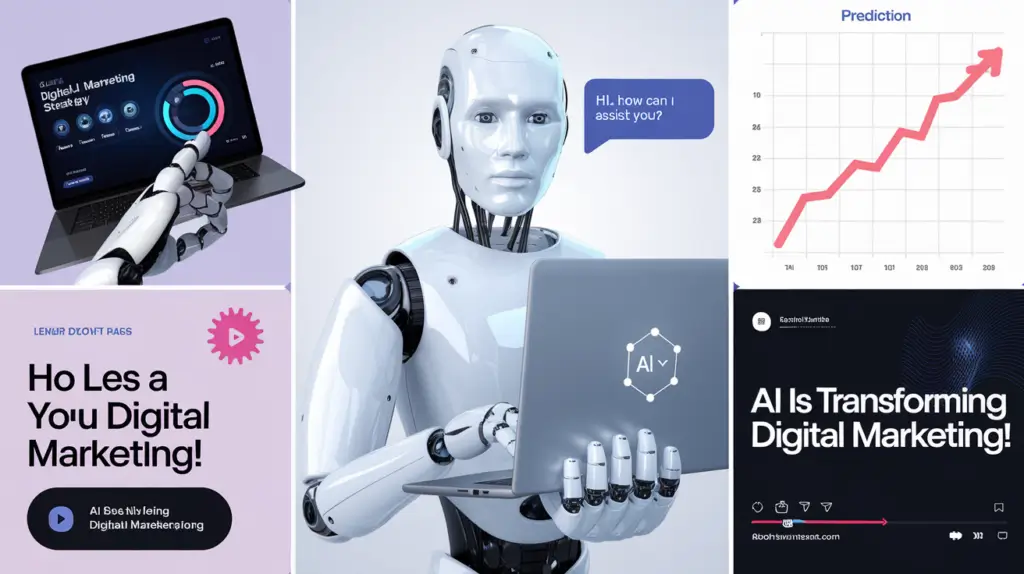
Personalized Customer Experiences
Personalization is at the heart of effective digital marketing, and AI makes it more precise and scalable. By analyzing user behavior, preferences, and purchasing history, AI can:
- Recommend products or services tailored to individual users (e.g., Amazon’s product recommendations).
- Deliver personalized email campaigns based on customer segments.
- Optimize website experiences with dynamic content.
Predictive Analytics
Predictive analytics powered by AI helps marketers forecast trends and customer behaviors. Applications include:
- Identifying high-value leads and predicting their likelihood to convert.
- Optimizing ad targeting and budget allocation.
- Anticipating market trends to stay ahead of competitors.
Content Creation and Curation
AI tools are now capable of generating content, saving marketers time and effort. Examples include:
- AI-driven platforms like Jasper and Copy.ai for writing blog posts, ad copy, and social media captions.
- Automated curation of relevant content for newsletters and feeds.
- Enhancing SEO through AI tools that suggest keywords, meta tags, and optimization strategies.
Chatbots and Customer Support
AI-powered chatbots are transforming customer interactions by providing instant and accurate responses. Benefits include:
- 24/7 availability to address customer queries.
- Multilingual support for global audiences.
- Seamless integration with CRM systems to provide personalized assistance.
Programmatic Advertising
AI has revolutionized programmatic advertising by automating ad buying and targeting. Features include:
- Real-time bidding for ad placements.
- Hyper-targeted campaigns based on user behavior and demographics.
- Improved ROI through optimized ad spend and placement.
Benefits of AI in Digital Marketing
The integration of AI in digital marketing offers several advantages:
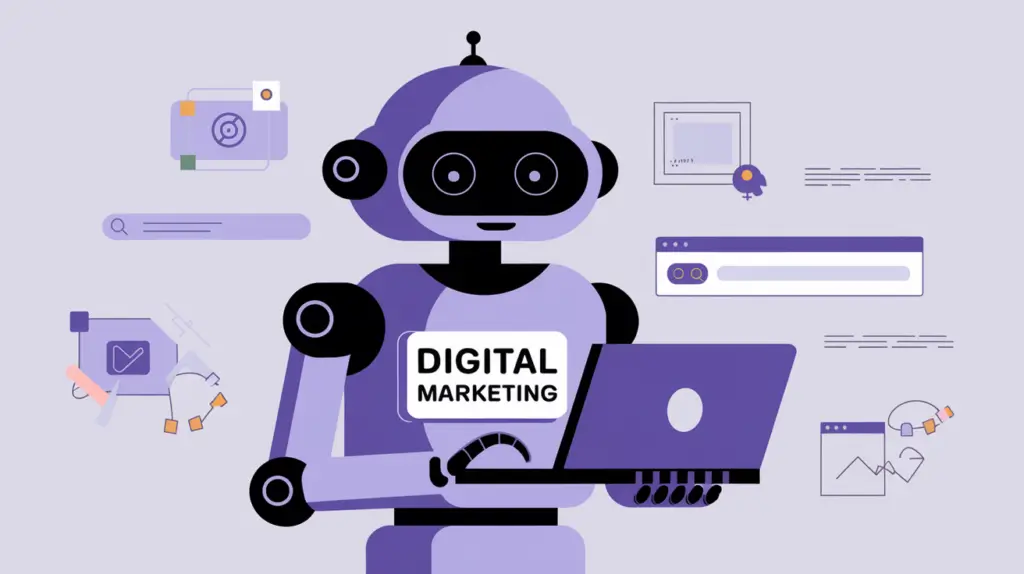
Efficiency and Cost-Effectiveness
AI automates repetitive tasks like data analysis, ad targeting, and email marketing, freeing up time and reducing operational costs.
Data-Driven Decision Making
By analyzing vast amounts of data, AI provides actionable insights that help marketers make informed decisions. This includes understanding customer behavior, optimizing campaigns, and improving user engagement.
Enhanced Customer Engagement
AI enables hyper-personalized interactions, ensuring customers feel valued and understood. Chatbots, personalized recommendations, and targeted ads all contribute to improved engagement and loyalty.
Challenges and Ethical Consideration
While AI offers immense potential, it also presents challenges:
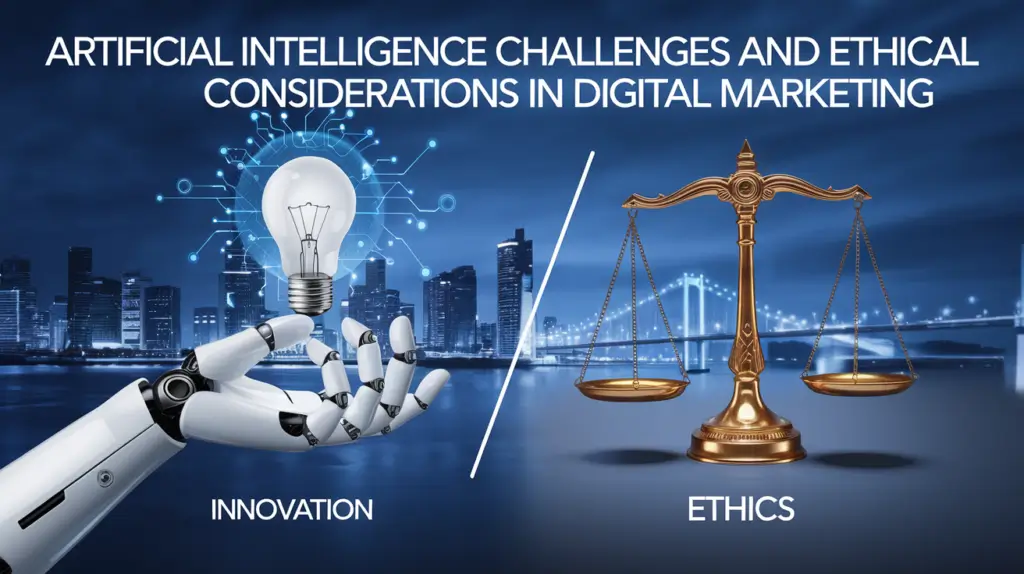
Data Privacy Concerns
AI relies heavily on data, raising concerns about privacy and security. Marketers must ensure compliance with regulations like GDPR and CCPA.
Bias in Algorithms
AI systems can inherit biases from training data, leading to unfair or inaccurate outcomes. Ethical oversight is crucial to mitigate this risk.
Dependence on Technology
Over-reliance on AI could reduce human creativity and intuition in marketing strategies. A balanced approach is essential.
Future Trends: What to Expect in AI-Driven Marketing
The future of AI in digital marketing is exciting, with several trends on the horizon:
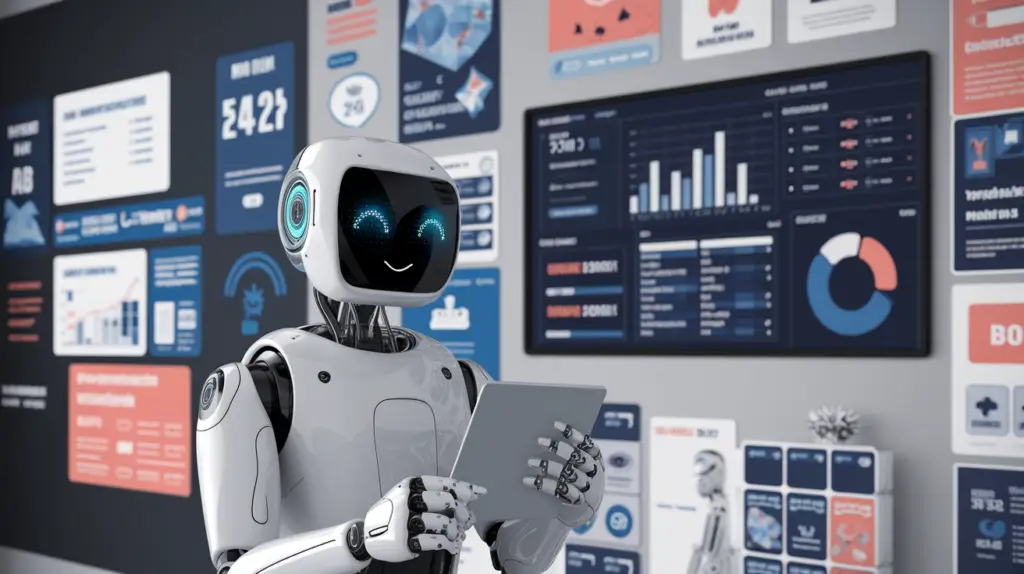
Voice Search Optimization
As voice assistants like Alexa and Google Assistant gain popularity, optimizing content for voice search will become a priority.
Augmented and Virtual Reality (AR/VR)
AI-powered AR/VR experiences will revolutionize customer interactions, offering immersive ways to showcase products and services.
Advanced Sentiment Analysis
AI will enable deeper insights into customer emotions through sentiment analysis, helping brands refine their messaging.
Predictive Customer Journeys
Future AI tools will map entire customer journeys, predicting actions and optimizing touchpoints for better conversions.
Autonomous Marketing Systems
AI-driven platforms will evolve to manage entire campaigns autonomously, from strategy development to execution and analysis.

7. Conclusion
Artificial intelligence is undeniably shaping the future of digital marketing. By enabling smarter decision-making, hyper-personalization, and efficiency, AI empowers businesses to connect with their audiences like never before. From personalized customer experiences to predictive analytics, the applications of AI are vast and transformative.
However, as we embrace AI-driven marketing, it’s essential to address challenges like data privacy and algorithmic bias. A responsible and balanced approach will ensure that AI continues to drive innovation while maintaining ethical integrity.
The future of digital marketing is bright, and AI is at its core. Businesses that leverage this technology effectively will not only stay ahead of the competition but also set new standards for customer engagement and satisfaction. As we move forward, the fusion of human creativity and AI-driven efficiency will define the next era of marketing excellence.

